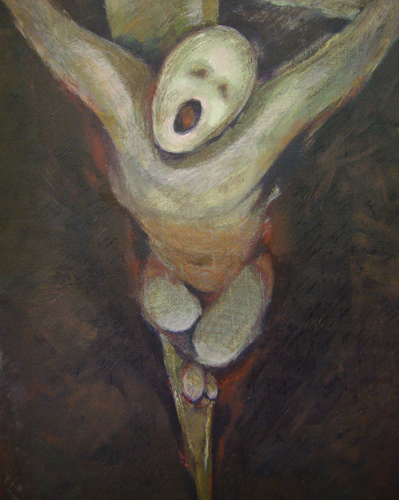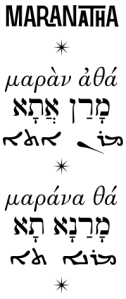
Yesterday, being Palm Sunday, we read the Passion Gospel. Even though we should have been reading Luke’s Passion because we are in Year C of lectionary, we ended up with the shorter version of Matthew‘s Passion for some reason. Afterwards there were a few questions about the words of Jesus from the cross, ‘Eli, Eli, lema sabachthani?’. So, I thought I should write some words about this phrase, which appears in both Matthew and Mark:
Mark 15.34:
At three o’clock Jesus cried out with a loud voice, ‘Eloi, Eloi, lema sabachthani?’ which means, ‘My God, my God, why have you forsaken me?’
καὶ τῇ ἐνάτη ὥρᾳ ἐβόησεν ὁ Ἰησοῦς φωνῇ μεγάλῃ· ελωι ελωι λεμα σαβαχθανι; ὅ ἐστιν μεθερμηνεθόμενον· ὁ θεός μου ὁ θεός μου, εἰς τί ἐγκατέλιπές με;
Matthew 27.46:
And about three o’clock Jesus cried with a loud voice, ‘Eli, Eli, lema sabachthani?’ that is, ‘My God, my God, why have you forsaken me?’
περὶ δὲ τὴν ἐνάτην ὥραν ἀνεβόησεν ὁ Ἰησοῦς φωνῇ μεγάλῃ λέγων· ηλι ηλι λεμα σαβαχθανι; τοῦτ’ ἔστιν· θεέ μου θεέ μου, ἱνατί με ἐγκατέλιπες;
The main difference between the two versions, apart from Greek grammatical differences are the spellings of the call on God: Mark’s ελωι and Matthew’s ηλι.
Continue reading “My God, my God, why have you forsaken me?”


